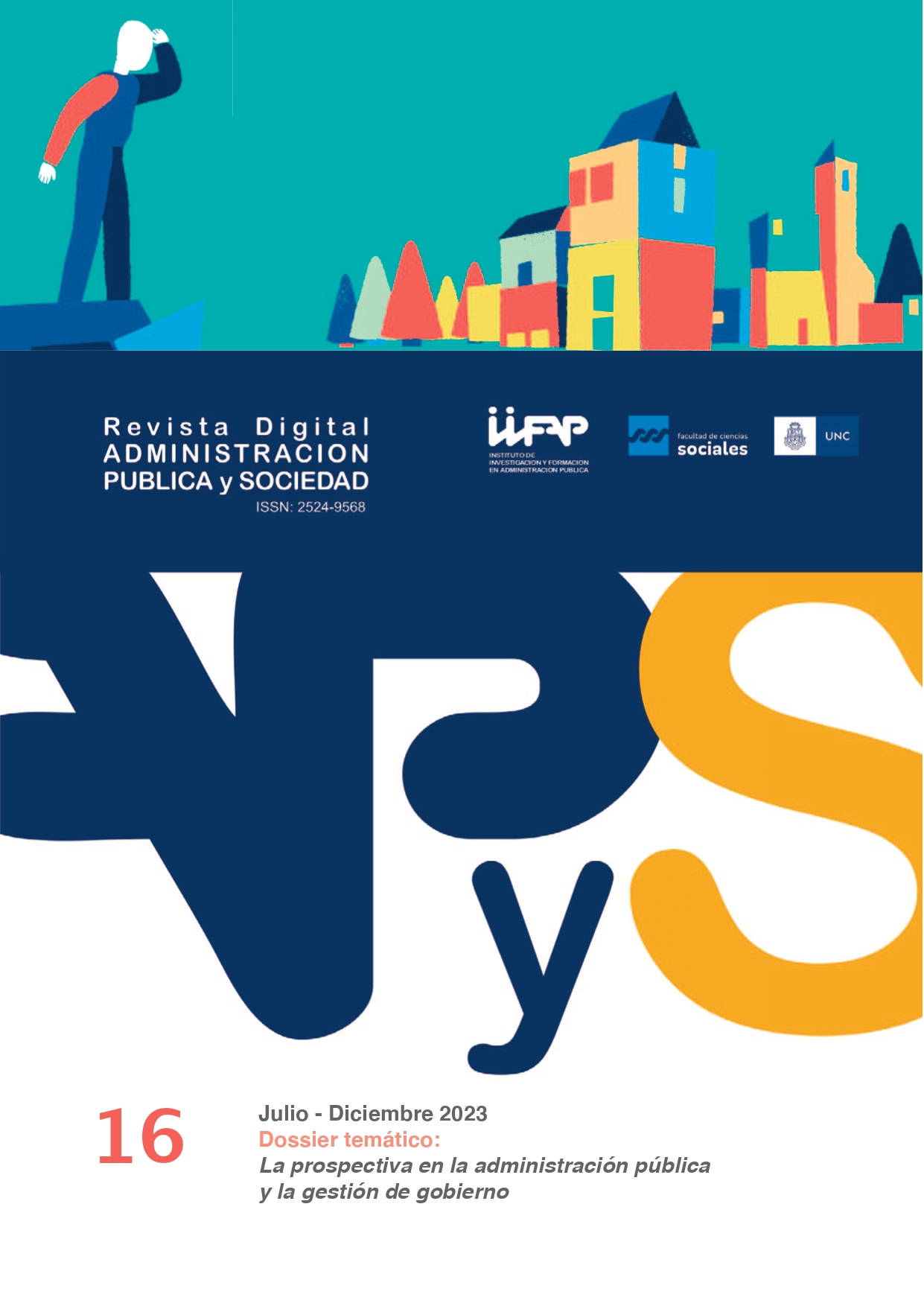Transformations in the future of public employment: from white collar to digital collar
Main Article Content
Abstract
The world of work is going through profound transformations produced by the so-called IV Industrial Revolution. The convergence of scientific development, the application of new technologies and the speed of automation, digitalization and incorporation of new ways of managing information processes are accelerating reforms in traditional organizational formats inherited from the last century. The issue is crucial, since one of the characteristics of this type of society is the lability of its labor market. In this framework, a good part of the workforce will have to face scenarios in which skills are required that, despite being sophisticated and innovative, are not within their reach. Profound changes are expected in administrative work, from white collar workers to digital collar workers, that is, new profiles associated with these changes at different levels, such as income, work modalities, professionalization and training. The purpose of this presentation is to observe and analyze the different scenarios that emerge, in order to outline future strategies for public employment.
Downloads
Article Details

This work is licensed under a Creative Commons Attribution-NonCommercial-ShareAlike 4.0 International License.
Authors who publish in this journal accept the following terms of the copyright policy:
- Authors shall retain their copyright (including copyrights) and shall grant to the journal the right of first publication of their work, which shall simultaneously be subject to the Creative Commons Recognition License: No commercial use of the original work or any derivative works is permitted, distribution of which must be made under a license equal to that which governs the original work.
- Authors may adopt other non-exclusive license agreements for the distribution of the version of the published work (e.g., placing it in an institutional repository or publishing it in a book) provided that the initial publication in this journal is indicated.
- Authors are allowed and encouraged to disseminate their work through the Internet (e.g., in institutional repositories or on their website) after the publication process, which may lead to interesting exchanges and increased citations of the published work. (See The Effect of Open Access).
References
ALAIMO, M; CHAVES, M y SOLER, N.(2019). ¿Cómo garantizar los derechos de los trabajadores en
la era digital? en El futuro del trabajo en América Latina y el Caribe.
https://publications.iadb.org/publications/spanish/viewer/El_futuro_del_trabajo_en_Am%C3%A9ri
ca_Latina_y_el_Caribe_C%C3%B3mo_garantizar_los_derechos_de_los_trabajadores_en_la_era
_digital_versi%C3%B3n_para_imprimir_es.pdf
BLUTMAN, G y CAO, H. (2023) Materia Estado: el futuro del empleo público, las tecnologías digitales
y las estructuras estatales. INAP. Argentina
BLUTMAN, G.y FELCMAN, I. (2020). Cultura organizacional: nuevos dioses y la búsqueda del
eslabón perdido para la transformación del Estado. Cuadernos del INAP (CUINAP), 1(18).
https://publicaciones.inap.gob.ar/index.php/ CUINAP/issue/view/43
GARNERO, P.; RIPANI, L.y MERINO, M. F. América Latina en Movimiento. Competencias y
habilidades para la cuarta revolución industrial en el contexto de pospandemia. Instituto para la
Integración de América Latina y el Caribe (INTAL) Sector de Integración y Comercio (INT). BID.
file:///C:/Users/gonzalezgalmarinif/Downloads/America-Latina-en-movimiento-competencias-y-
habilidades-para-la-cuarta-revolucion-Industrial-en-el-cont%20(1).pdf
LONGO, F. (2006). Oferta y demanda de gerentes públicos. Un marco de análisis de la
institucionalización de la dirección pública profesional. Revista del CLAD Reforma y Democracia.
OCDE (2023). Perspectivas de empleo de la OCDE 2023: La inteligencia artificial y el mercado laboral
(Resumen ejecutivo).https://www.oecd-ilibrary.org/employment/oecd-employment-outlook-
_0e477061-es
SALAS, E y SOLANO, M. (2023) Profesionalización del empleo público. Programa de Estado y
Gobierno. Potenciar el desarrollo argentino hacia los próximos 40 años de democracia. CIPPEC.
https://www.cippec.org/wp-content/uploads/2023/09/Documento-3.0-Profesionalizacion-del-
empleo-publico.pdf
SALAS, E. (2020). Empleo Público. Trayectoria, balance y proyecciones. Hacia consensos básicos.
Cuadernos del INAP (CUINAP), 1(25).
https://publicaciones.inap.gob.ar/index.php/CUINAP/issue/view/55
SCHEIN, E. (1988). La cultura empresarial y el liderazgo. Barcelona: Plaza & Janés,
SCOLARIi, C. (2018). Las leyes de la interfaz. Barcelona: Gedisa.
SUAREZ, F. y FELCMAN, I. (2020). Tecnología y organización. Cuadernos del INAP (CUINAP), 1(38).
https://publicaciones. inap.gob.ar/index.php/CUINAP/issue/view/71
World Economic Forum (2020). The Future of Jobs. Report 2020.
https://www3.weforum.org/docs/WEF_Future_ of_Jobs_2020.pdf

